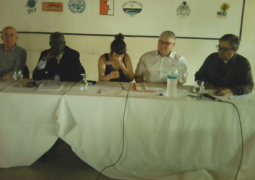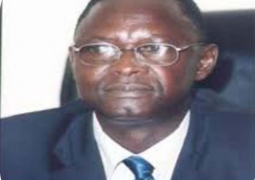Justice Fafa Edrissa Mb’ai of the Banjul High court yesterday upheld the appeal filed by one Buba Ceesay, and consequently discharged him.
The applicant Baba Ceesay was convicted and sentenced to 12 years in prison by the Banjul Magistrates’ Court, for converting materials that was given to him for shipment.
The high court discharged the appellant on the grounds that the appellant was prosecuted without the sanction of the Attorney General, when the alleged offence was not committed in The Gambia.
Lawyer Kebba Sanyang filed several grounds of appeal and contended that the offences were committed in the Kingdom of Spain; the appellant was not a civil servant at the time of committing the alleged offence, and that the appellant was prosecuted under section 300 of the criminal code without the sanction of the Attorney General.
He submitted that the record of proceedings had showed that the prosecution did not have the sanction of the Attorney General, and that the appellant was not under the employment of the Gambia government.
Counsel further stated that the principle of the territorial law was fundamental, because ‘you cannot make a law and implement it outside’.
He then urged the court to set aside the judgment of the lower court, and release the appellant from custody.
The judge consequently discharged the appellant on the grounds that they did not have the sanction of the Attorney General to prosecute the appellant, and the offence happened in the territory of the Kingdom of Spain and not in The Gambia.
According to the particulars of the offence, in April 2011 in the Kingdom of Spain, the appellant was alleged to have been given 31 drums of paint, 19 mattresses with hospital beds, 8 big mattresses and 56 doors, by one Almami Drammeh, for shipment to the Gambia, valued at D884, 985, which he converted to his own use.
Read Other Articles In Article (Archive)
Export of groundnuts projected to be strong
May 3, 2011, 1:35 PM



